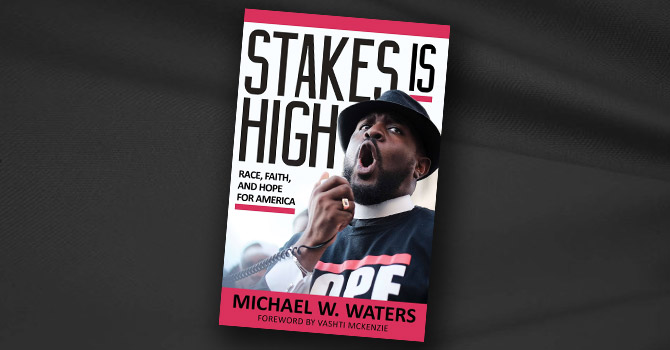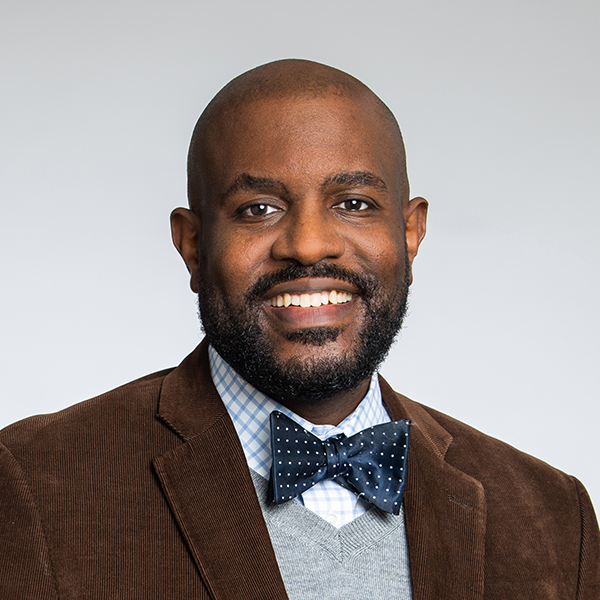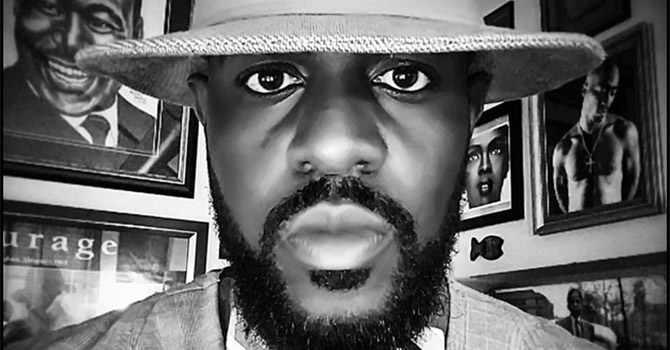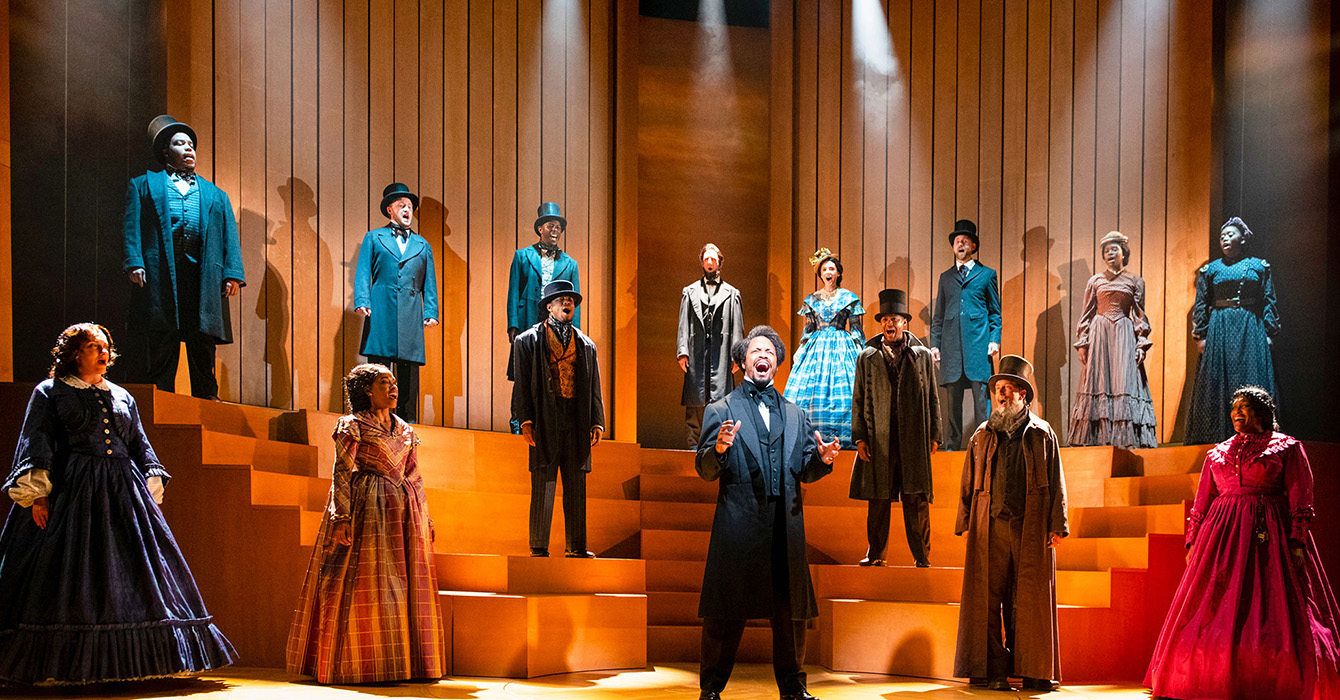On Martyrs and Ancestors
She entered my office one Sunday afternoon after worship, an extra large manila folder tucked under her arms. The pages in the folder were as liquid brimming at the edge of its container. All that kept the pages from covering the floor was her sure, tight grasp.
I had not known of her before she called and left a message at the church earlier in the week. Presently residing in New York City, she was a long way from home in Dallas, Texas. In her voicemail, she mentioned that she had come across several of my writings, and she was compelled to come and speak to me in person.
The folder contained files concerning the death of her college-aged daughter. She died in police custody while matriculating at a Texas junior college. The authorities claimed that her daughter may have overdosed on drugs and succumbed to them while in their custody. Her mother informed me that her daughter had struggled with depression since the tragic death of her older brother several months before, yet she could not accept her daughter’s death as reported.
The facts just did not add up. Her daughter’s autopsy report revealed bruises and contusions on her upper and lower torso, on her face, and on many other parts of her body. The cause of these injuries had not been explained. Additionally, video footage of her daughter’s final moments in custody had not been released despite multiple requests. She believed the authorities were hiding something.
She then opened her massive files to remove a single sheet of paper. It was a picture of her daughter. Looking me intently in my eyes, she asked me whether I could help her tell her daughter’s story.
Two years later, she left me another message at the church. She was about to return to Texas. This time, she was not coming alone. She had organized a nationwide gathering of mothers and sisters who had lost their children and their siblings to police brutality. After a few days of organizing and demonstrating in the area, these women desired to hold a “speak out” where they could share in community their stories of sorrow and overcoming.
Unfortunately, their attempts to reach out to older, more established churches in the city had been met with resistance. She wanted to know whether our young church would open its doors to them. Without hesitation, I said, “Yes.”
One Saturday evening, I stood at the main entrance of the church as the women arrived. In many of their faces I saw looking back at me the face of my own mother. They all squeezed me tightly in their embrace as only a mother can. Most uncomfortably, they called me their hero, noting ours as the only church that was willing to open its doors to them.
Honestly, I did not feel as if I had any choice in the matter. Is this not the purpose of the church, to open its doors to the afflicted, to provide them a space to find peace and comfort in the presence of God? Our opening of a door was incomparable to all they had done and experienced. If there were any heroes present, it clearly was them.
As the program began, I was asked if I intended to offer any words. I declined. My purpose that night was to listen and bear witness to what was spoken.
One by one, these courageous women stood and spoke of loved ones lost to police brutality. They spoke of delays and denials in receiving records from the authorities. They spoke of grand juries failing to indict. They spoke of final conversations held and of dreams left unfulfilled. They even spoke of loved ones calling out for them in their dreams. For these mothers, these dreams had become nightmares.
Somehow, they also spoke of the power to forgive.
Amid their gathering, one particular statement reverberated above the others, something these women wanted to make unmistakably clear. They wanted the world to know that their loved ones were much more than mere hashtags on Twitter. They were real people with real hopes and real ambitions who suffered unconscionable pain before their demise, whose absence left a gaping hole in the hearts of all who love them. And for them, their loved ones had still received no justice.
After a repast later that evening, another mother entered my office. She too held in her arms a folder overflowing with papers. She said, “I guess you can handle this. This is the most important thing that I keep in my possession.”
She opened the folder to reveal pictures of a corpse. She carefully pointed to the bruises that covered the body. She pointed to a throat that had been crushed under a knee. She pointed to a botched autopsy effort and revealed that she had to order a second, independent autopsy. The only thing that brought her comfort was her belief that her son had not suffered long. She believed that God had reached down and taken her son quickly to heaven as his broken body rested upon the cold pavement.
I nodded my head and smiled. Inside, I was unconvinced. His looked like a brutal, agonizing, and lonely death. I was angry that far too many Black bodies for far too long have met this tragic and unnecessary end. Had there truly been no way to apprehend this unarmed young man of slight frame on that bridge than to crush him under the weight of many officers?
At times, the mantle of ministry mandates that you both see and hear difficult things. Prophetic ministry then requires that you speak out concerning what you have witnessed. Always, the mantle of ministry requires courage.
The young college-aged woman’s name was Ahjah Dixon. She was 23 years old. She died March 4, 2010, while in police custody in Corsicana, Texas, jail. Say her name. Continue to say her name “until justice flows like waters, and righteousness like a mighty stream” (Amos 5:24, paraphrased).
Only then shall we have no need to speak such names any more.
Excerpted from “Stakes Is High: Race, Faith, and Hope for America” by Michael W. Waters, published by Chalice Press. Used by permission. All rights reserved.















